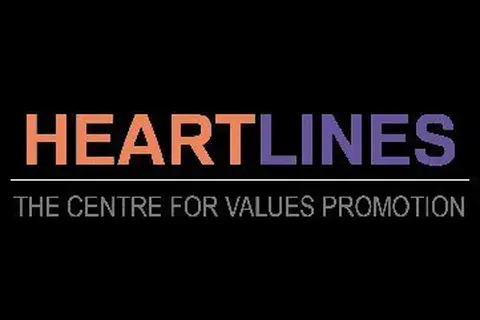Effective community mediation begins with empathy
Peace , Reconciliation , What's Your Story?The truth about war or unrest is that, even if someone is victorious, ultimately everyone experiences a loss.
The
past years have seen violent protests and unrest flare up in various
parts of South Africa and the result was loss of lives and the
destruction of many essential services, families and communities. At the
recent peace-building Bridge event
with clerics in the KwaZulu-Natal (KZN) region, the sentiment was
clear: we cannot stand by idly and let division and unrest unfold.
One leader emphasised that bipartisanship is key to establishing one’s authority as a mediator. “Leaders can achieve this by focusing on shared values and promoting civil discourse, even when faced with political differences within their communities,” he added.
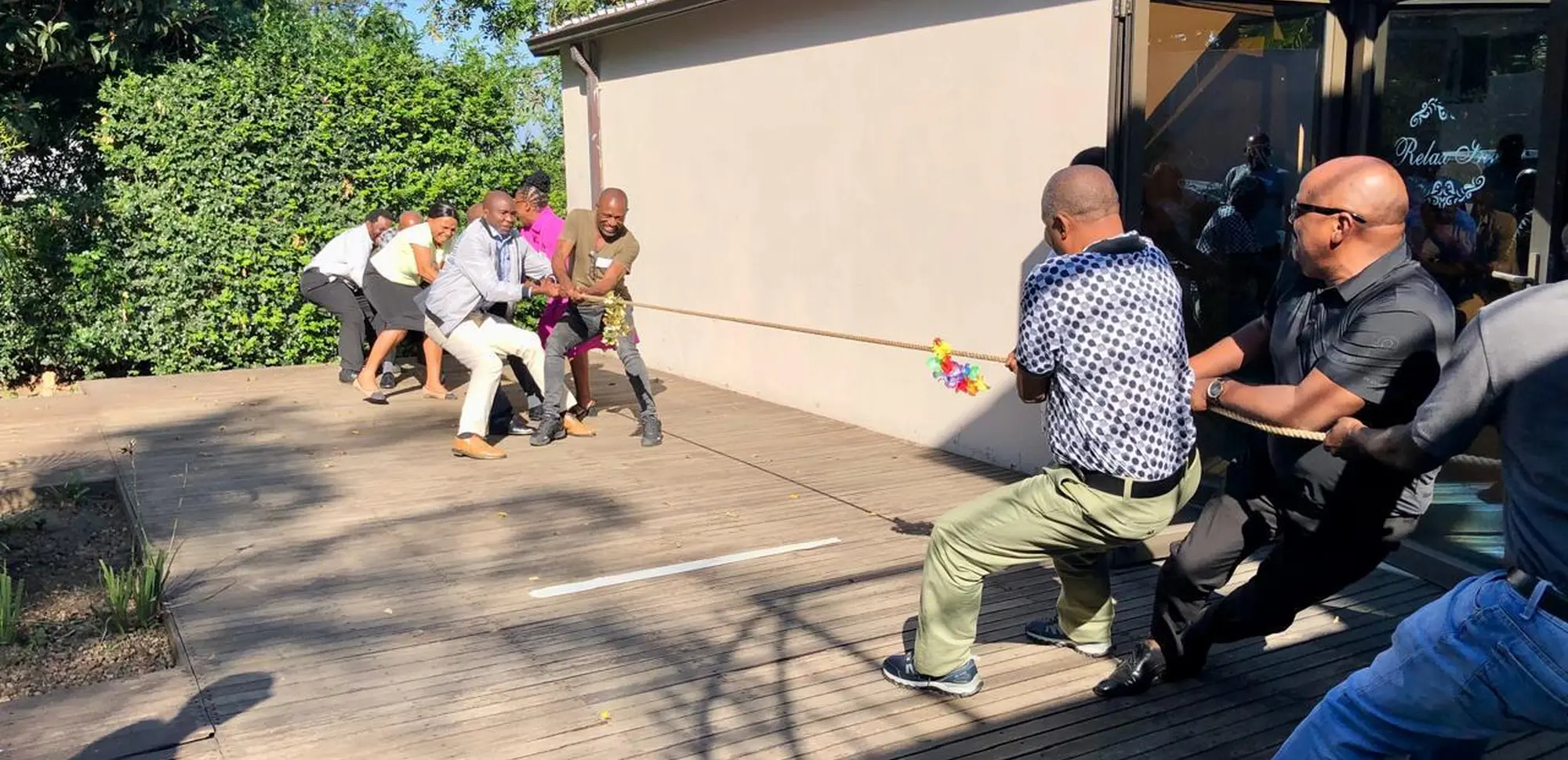
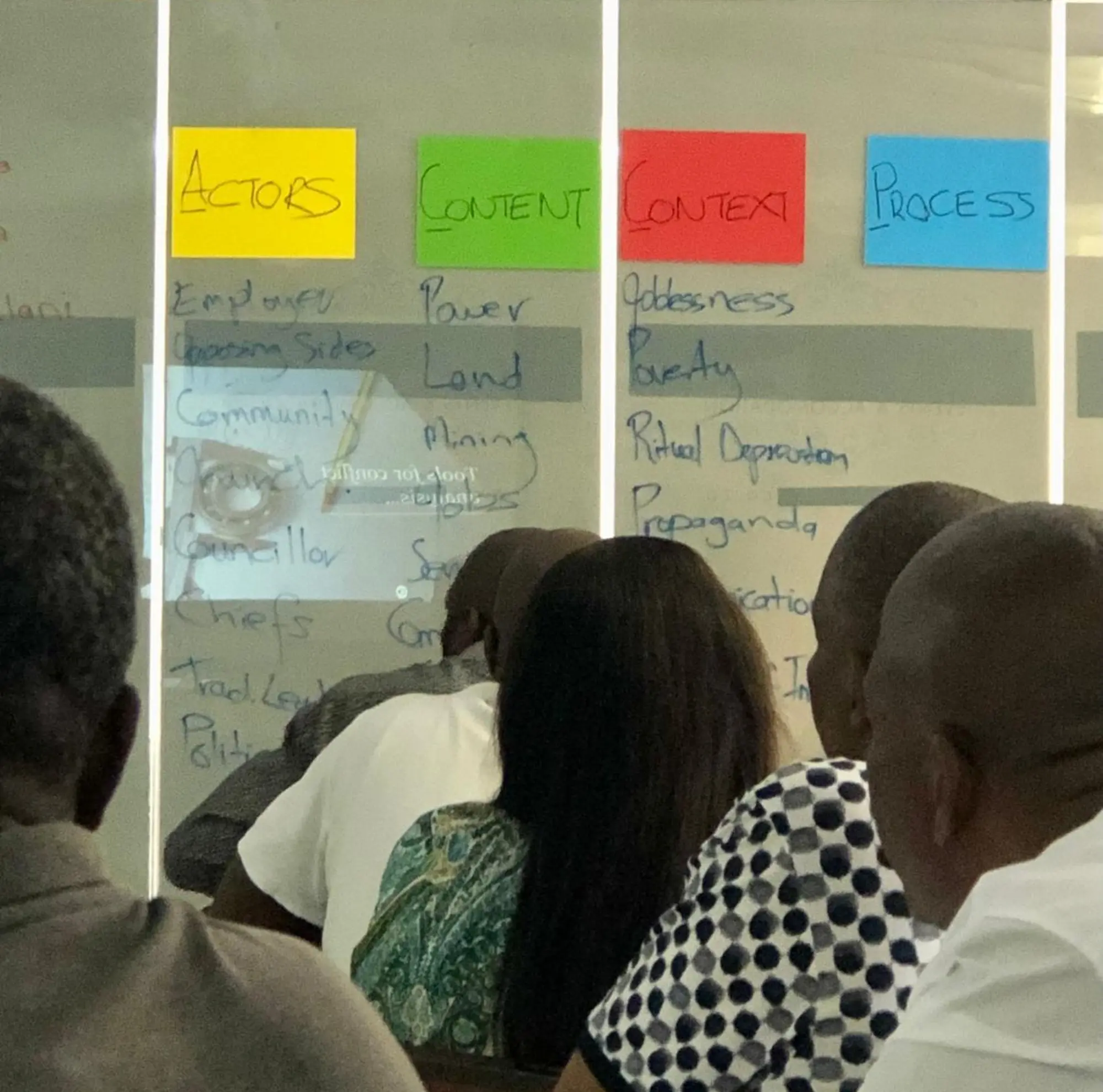
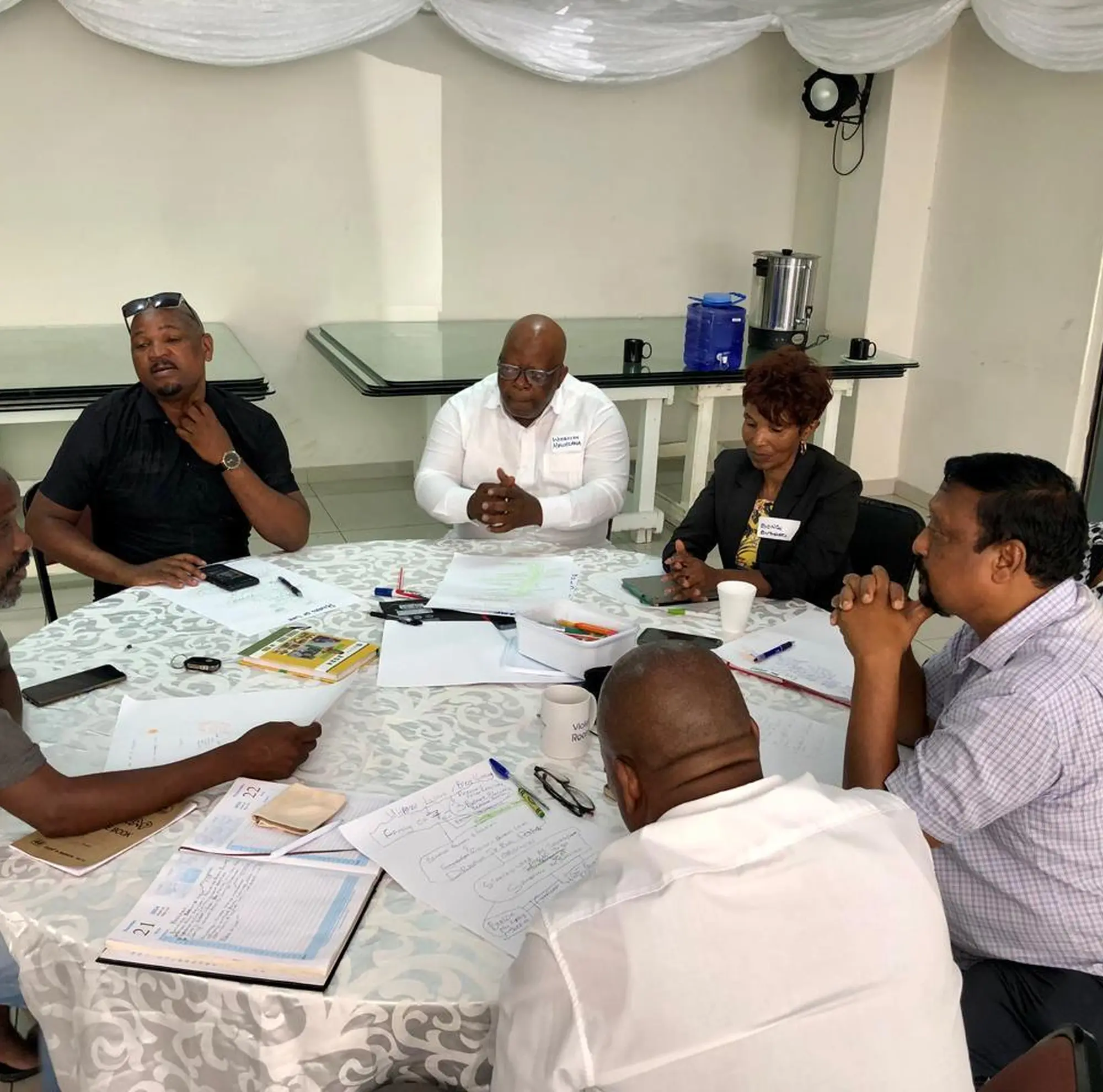
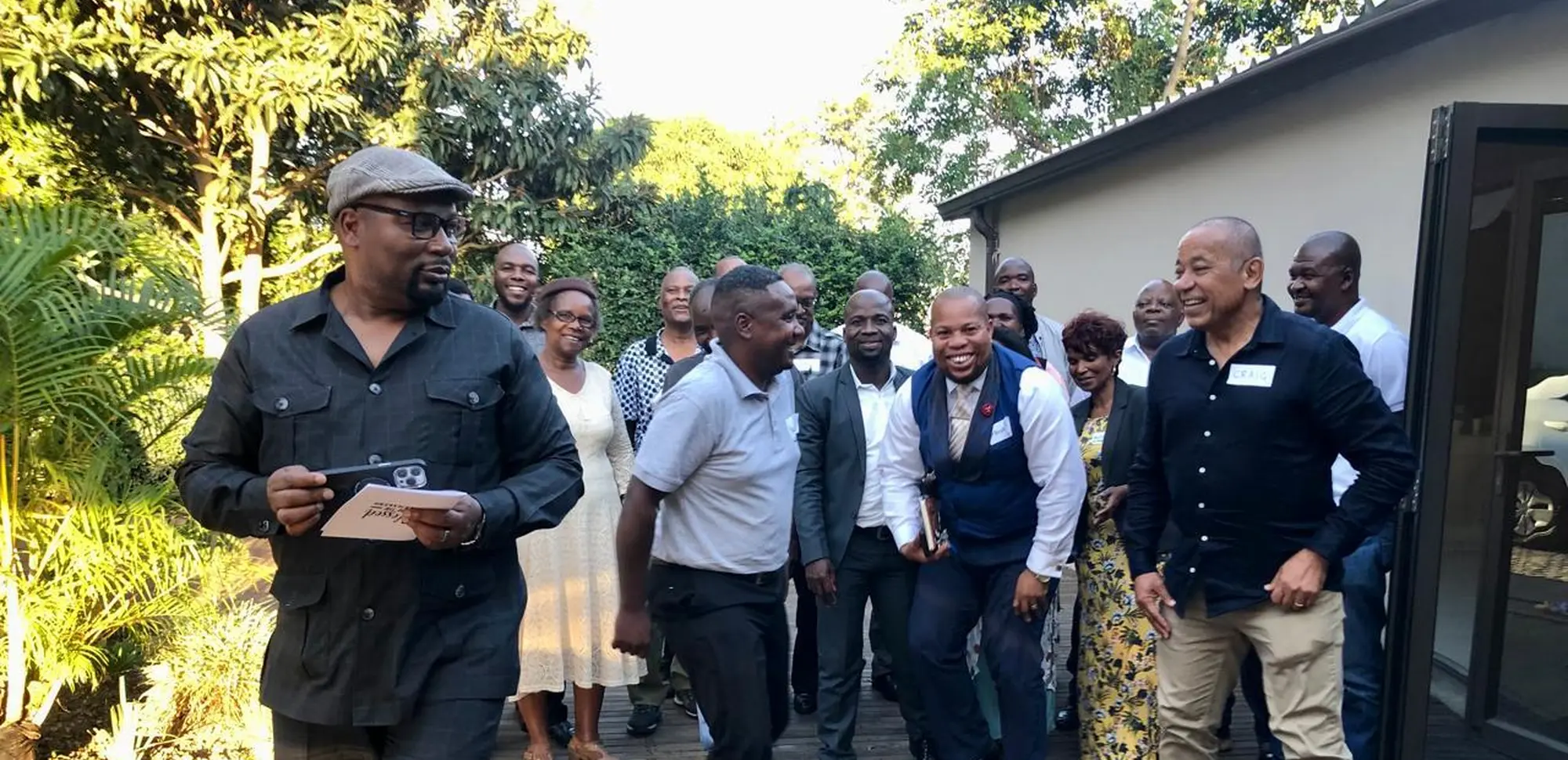
Bipartisanship is when two groups or political parties that usually oppose each other agree or work together, trying to find common ground. But what happens when common ground just cannot be found, and unrest or violence starts to unfold? That’s when you need community mediation, according to Pros Ndimande, International Development Professional and facilitator at the KZN peace-building Bridge process.
What is community mediation?
According to Resolution Systems Institute and theNational Association for Community Mediation, “Community mediation offers constructive processes for resolving differences and conflicts between individuals, groups and organisations. Participants control the process and create their own alternatives to avoidance, destructive confrontation, prolonged litigation or violence.”
Essentially, the community takes the power in their hands to work towards reconciliatory efforts. In community mediation, everyone gets an opportunity to discuss their concerns and needs. It also strengthens relationships, builds connections between people and groups, and creates processes that make communities work for everyone.
We use this question as a starting point for community mediation: What’s your story?
One of the best tools for starting a mediation process is personal story-sharing, says Craig Bouchier, Heartlines KZN rep. “During our Bridge process, leaders who have never met each other or worked together before sit around a table and use this question as a starting point for mediation: What’s your story?”
“Without taking time to truly listen to each other, we cannot understand the other’s perspective,” adds Bouchier. “Only through empathy and trying to understand each other can we begin the transformative work of reconciliation and mediation.” While everyone might not work in this space full-time, Ndimande believes we can all equip ourselves with the values needed to become a community mediator.
Characteristics of a great mediator
- Trustworthy: Being able to keep discussions confidential.
- Approachable: Respectful, empathetic and a careful listener.
- Dedicated: Devoting time and effort to a positive outcome.
- Perceptive: Understanding complex situations and risks.
- Impartial: Does not get emotionally involved in the process.
(Sourced from Fraser, Wilson & Bryan, P.C.)
Through the peace-building Bridge process, delegates focused on the
power of personal storytelling for building bridges of peace. This
exchange served as fertile ground for trust and empathy to blossom. From
there things ramped up to the hard work of peace-brokering: equipping
leaders to translate the lessons of peace-making into tangible actions
within their churches and communities. And to encourage others to do
likewise.
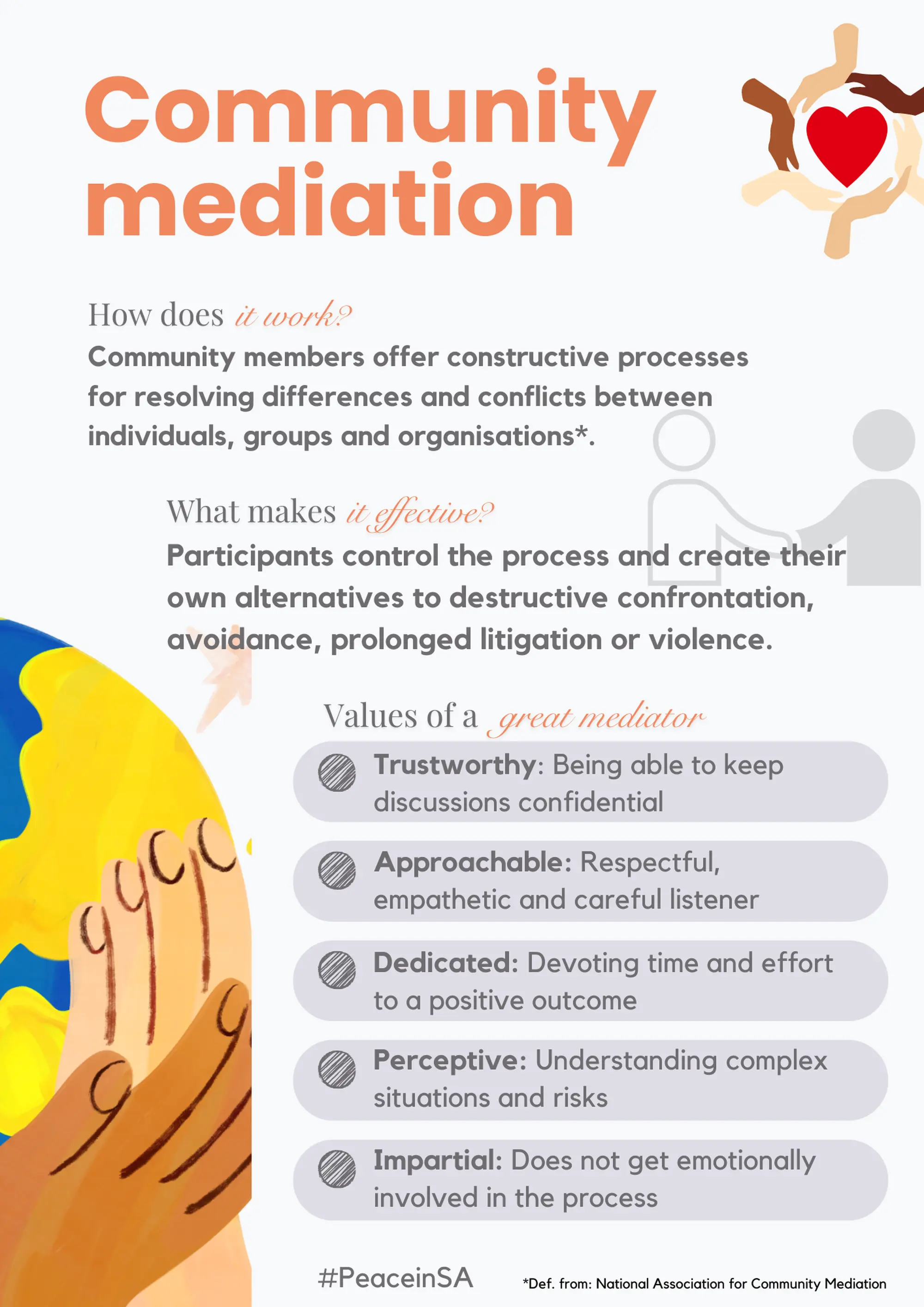
If you’d like to find out more about the peace-building Bridge process for your community email info@heartlines.org.za
Further Reading
Featured
